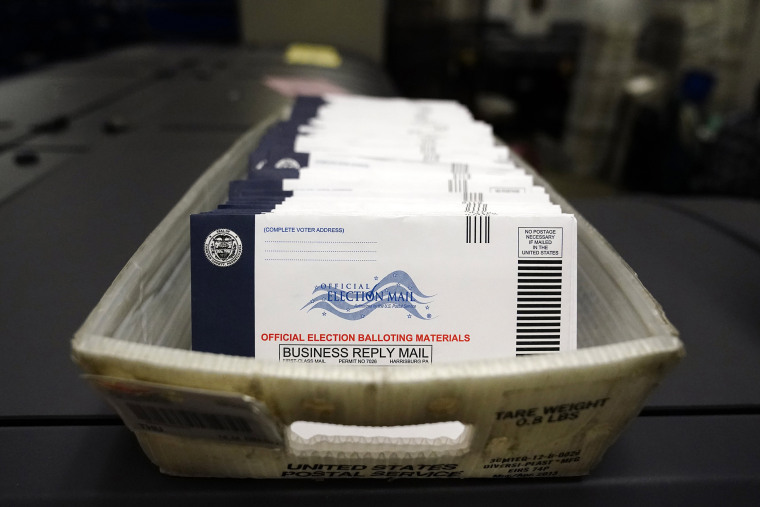The back-and-forth is tiresome and predictable: Republicans, desperate to suppress voting and rationalize election defeats, will insist there's rampant voter fraud throughout the United States. Democrats will respond by asking for evidence that never materializes.
Once in a while, however, Republicans will claim to have credible proof of fraud. This generally causes a stir, right up until those claims are subjected to scrutiny.
In September 2020, for example, then-Attorney General Bill Barr told a national television audience that the Justice Department had "indicted someone in Texas -- 1,700 ballots collected from people who could vote, he made them out and voted for the person he wanted to. OK?" As it turned out, no, it wasn't OK -- the Justice Department soon after was forced to concede that Barr's story wasn't true.
About a month later, Donald Trump repeatedly argued that in Wisconsin, "they" found "a lot of ballots in a river," which had been thrown out because they were votes for him. It wasn't long before we learned he'd made this up.
Earlier this year, Republicans in Arizona insisted that there was election fraud in Maricopa County that helped tipped the state in President Joe Biden's direction. An independent audit debunked the claims, and this week, a judge shredded a state GOP election lawsuit on the matter, calling it "baseless" and "groundless," while accusing Republican officials of "gaslighting."
And then, of course, there's the story out of Pennsylvania that Republicans were briefly quite excited about. The Washington Post reported on the results of a detailed investigation:
U.S. Postal Service investigators found no evidence to support a Pennsylvania postal worker's claim that his supervisors had tampered with mail-in ballots, according to an inspector general's report — allegations cited by top Republicans to press baseless claims of fraud in the presidential election.
A Pennsylvania mail carrier named Richard Hopkins originally claimed he heard a local postmaster discussing an election-fraud scheme. He even released a sworn affidavit to bolster his claims.
Sen. Lindsey Graham (R-S.C.), among others, took the allegations quite seriously, and the story helped fuel conspiracy theories about Biden's narrow victory in the Keystone State.
But the story wasn't true: not only did the Postal Service's Office of Inspector General discredit the claims, but Hopkins also recanted. The report from U.S.P.S. investigators specifically noted that the mail carrier eventually said "he had not heard a conversation about ballots at all — rather he saw the Postmaster and Supervisor having a discussion and assumed it was about fraudulent ballot backdating."
If recent history is any guide, these inconvenient details will do little to derail those who believe the Big Lie about Trump's defeat, but for those interested in reality, the fact that the conspiracy theorists have precisely zero victories should send a clear signal about the merits of their crusade.

